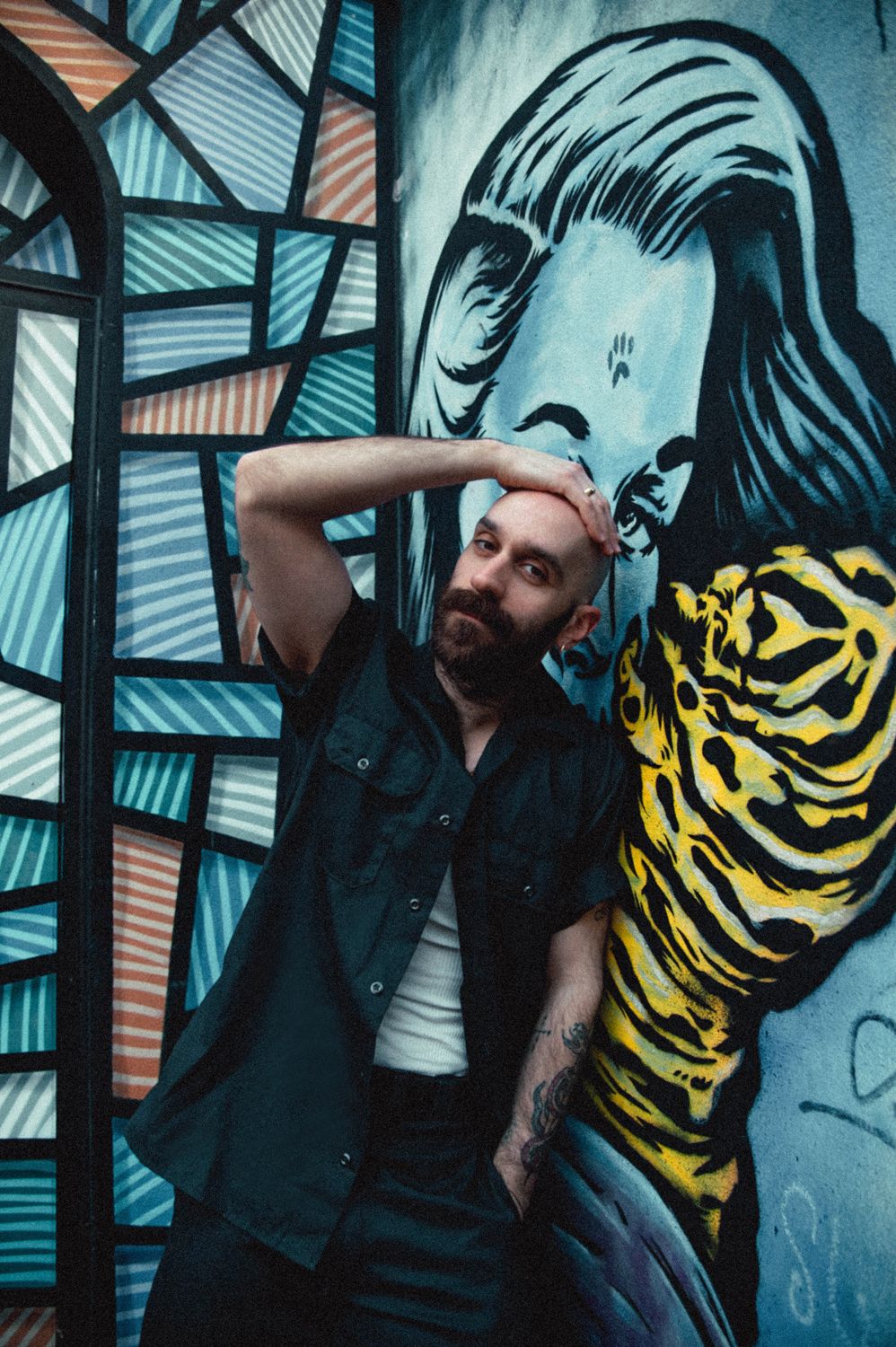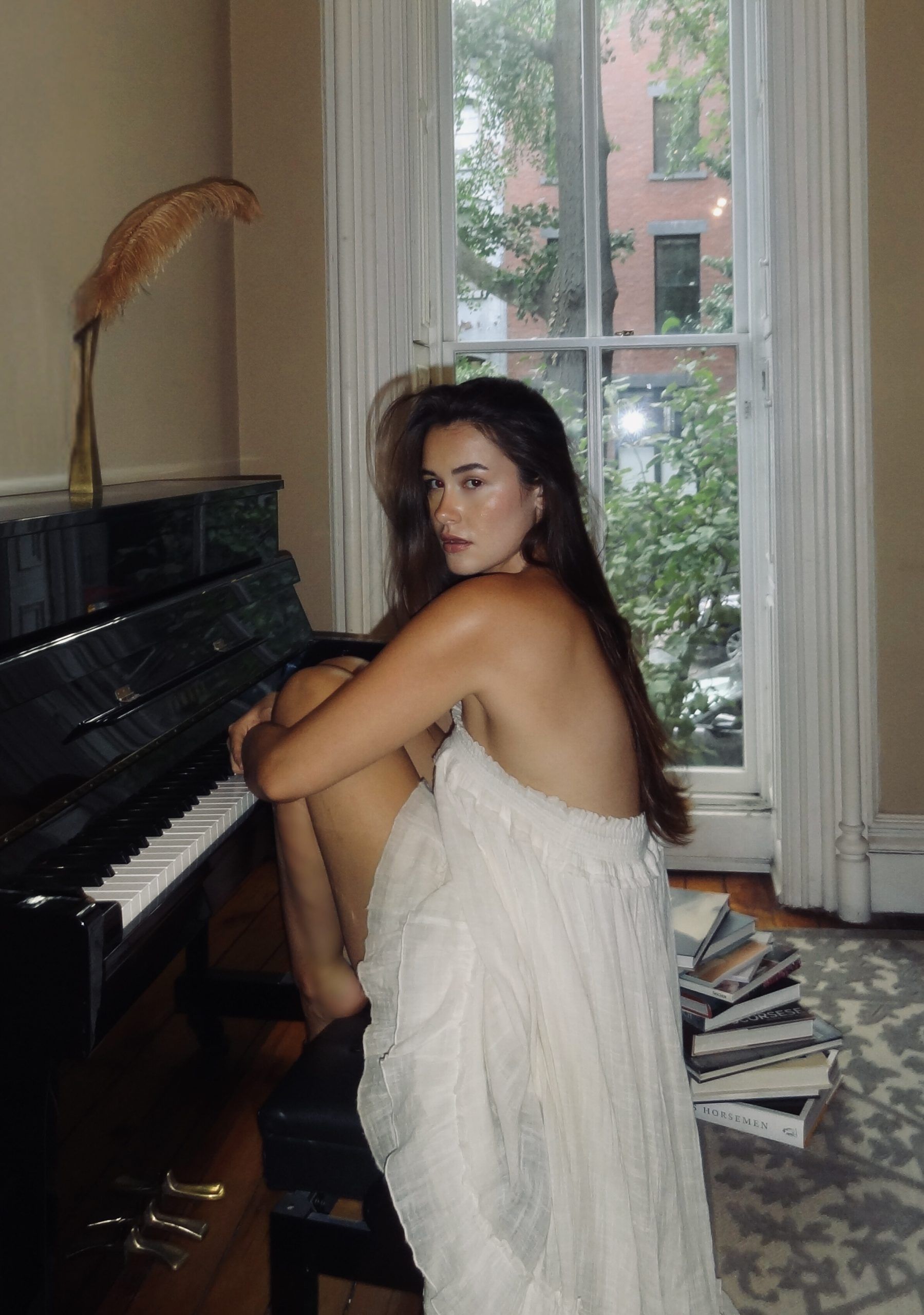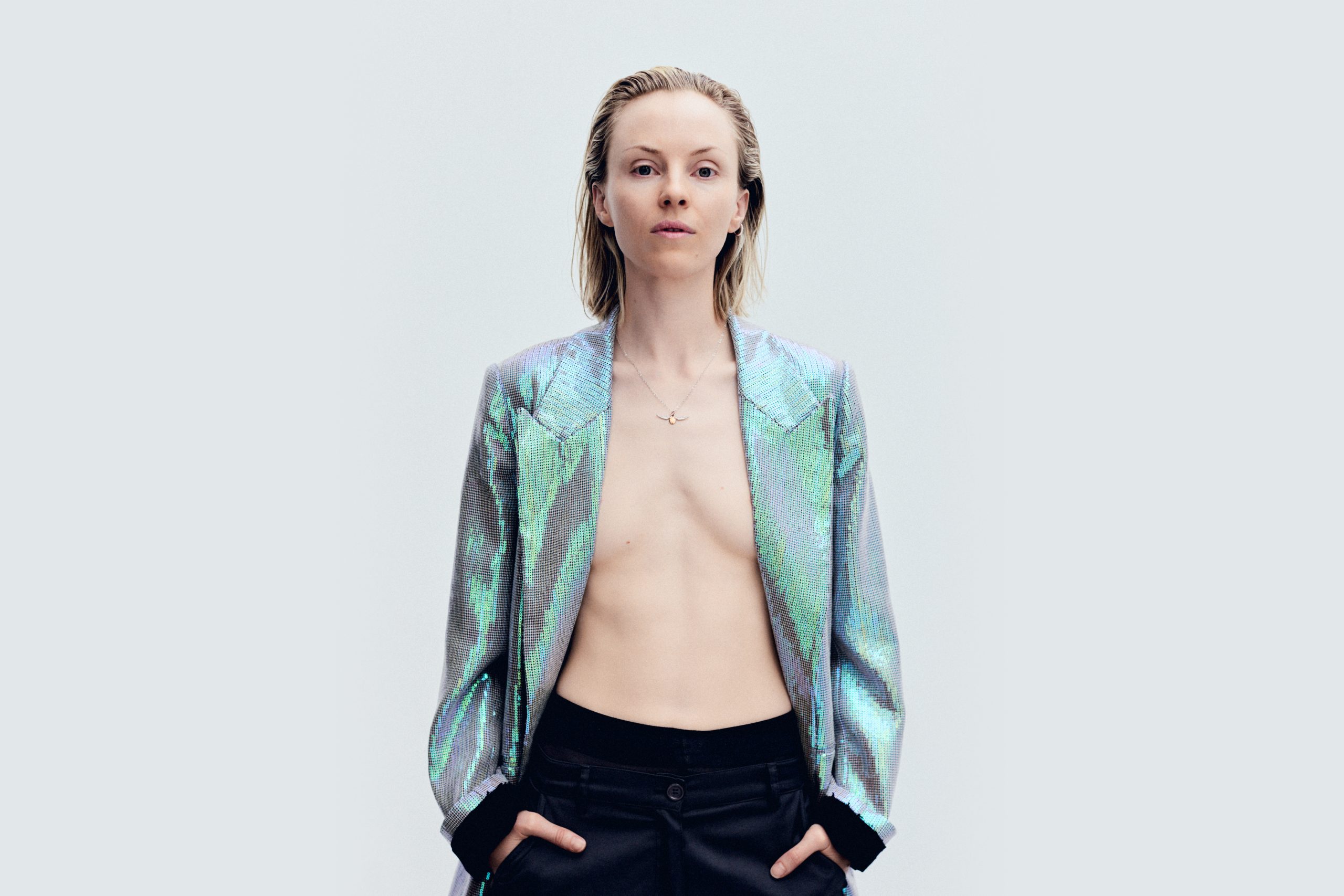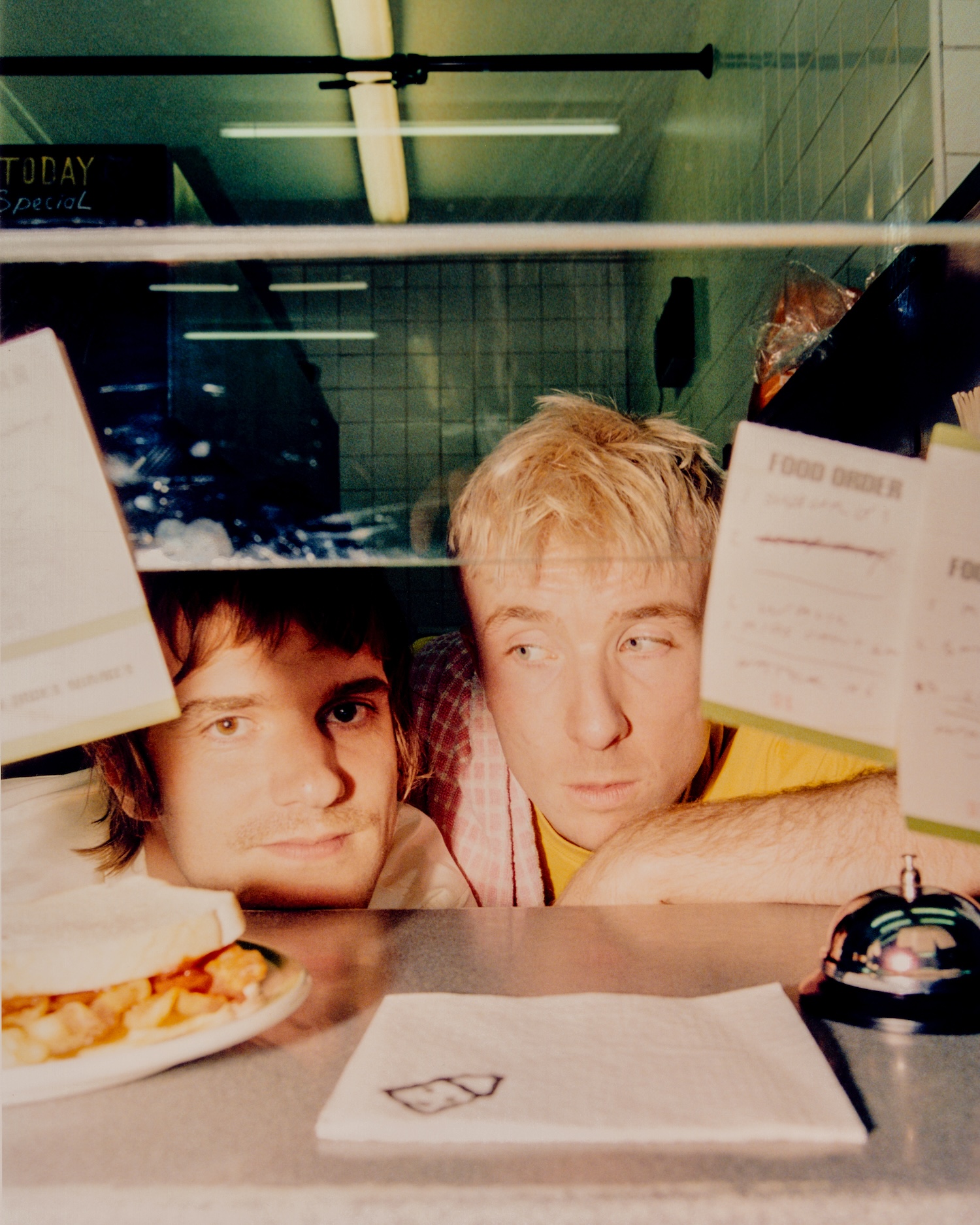The first thing noticeable about Sam Nelson Harris was his killer haircut… Okay, so we’re both bearded and completely bald, but it’s a solid look and suits him well (and me, but that’s enough about me). The next was his undeniable passion; as we spoke about everything from the new X Ambassadors album, Townie, to having discussions about mental health with family, the openness made it an utter delight chatting with him.
In 2015, the X Ambassadors released their debut album, VHS, which went Platinum in America. The album’s singles, “Unsteady”, and “Renegades”, achieved multi-platinum status, over 1.3 billion streams on Spotify, and garnered the band worldwide attention, helping to establish them as a key player in the global alternative music scene. Sam is the frontman, with his brother Casey Harris on keys, and Adam Levin on drums. The band has performed on late-night chat shows, had their music featured in major movie soundtracks, and collaborated with artists such as Lizzo and Rihanna.
Having just recently completed a European tour, with sold-out shows across the UK and the continent, 1883 catches up with Sam on the Canadian leg of their North America tour, to talk about the new album, family, inspirations, and of course the big one – Elon Musk stealing their name.
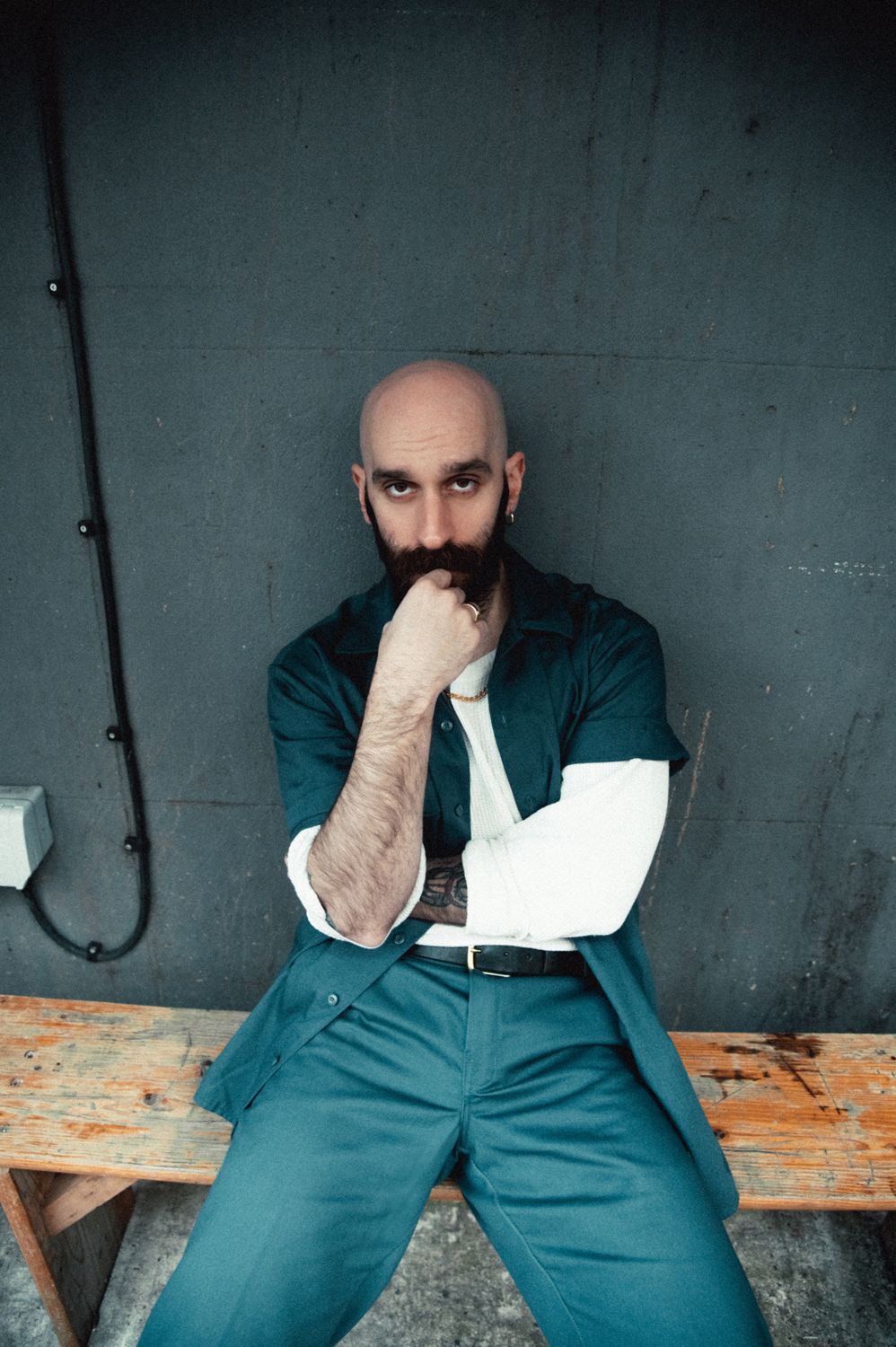
Hey, Sam, how you doing?
Am I looking in a mirror?
It’s a bit like that! I love your haircut. No one tells bald guys that, but we need to tell each other!
For sure! I’ve started making that joke too – every once in a while. It’s a great icebreaker.
As much as we could talk about our beautiful bald heads all day long, let’s talk about you and the band, shall we? Whereabouts are you guys right now?
We’re currently in Waterloo, Ontario, which is about a two-hour drive outside of Toronto. We’re wrapping up the Canadian leg of our North American tour with performances here tonight and then in Toronto tomorrow. After that, we have a day off before playing a private gig at a college in Massachusetts. Then, it’s back home to LA for a week before we head out on the road again for another month and a half.
So LA is home these days? Not in NY anymore?
LA has been home for me now for almost ten years. This September will mark nine years since I moved there from New York City, where I also lived for nine years. Before that, I spent sixteen years in Ithaca.
Do you find that where you are has a big influence on the music you make?
Yes and no. It’s interesting because I was recently looking at songs we wrote for a potential post-album release EP—songs we love that didn’t make the album cut. Some of these were written in the Catskills, Upstate New York, but they don’t necessarily sound like they were. It varies; some do reflect the place they were written, while others could be from anywhere. Sometimes, being in a different place inspires me to write something that reminds me of home, especially if I’m missing it. Or, I might be home and write something that takes me back to a place I was years ago, perhaps because I’m longing for a change. But then, there are times when the music just flows out naturally, unaffected by location.
For our latest record, which was about growing up in Upstate New York, we felt we had to physically go back there to capture the essence we wanted for the album. So, while Van Nuys (suburb of LA) is great, it wasn’t the right place for writing this particular story.
You’ve described Townie as a reflection on your upbringing in Ithaca and the sense of identity that comes from one’s hometown. When you were writing it, were you hoping it would resonate with people from small towns?
Yeah, definitely. Of course, there’s always something in the back of my mind hoping that whatever I’m writing, someone else will feel it too. That’s really the whole reason I do this – because I’m still that kid in his bedroom, screaming out into the void, asking, ‘Does anybody else feel the way that I feel? Because I feel very alone and I don’t want to be alone’.
So, yes, I hoped Townie would resonate, especially with people from small towns. But my approach to writing has to start from a somewhat selfish place: what do I want to say right now? Sometimes it’s very autobiographical, like on this record, and sometimes it’s not, as with previous records. But all of it comes from somewhere deep inside me, thinking this is the type of record I need to make right now. And by being honest with myself, I hope that honesty connects with our fans or anyone new listening to our work.
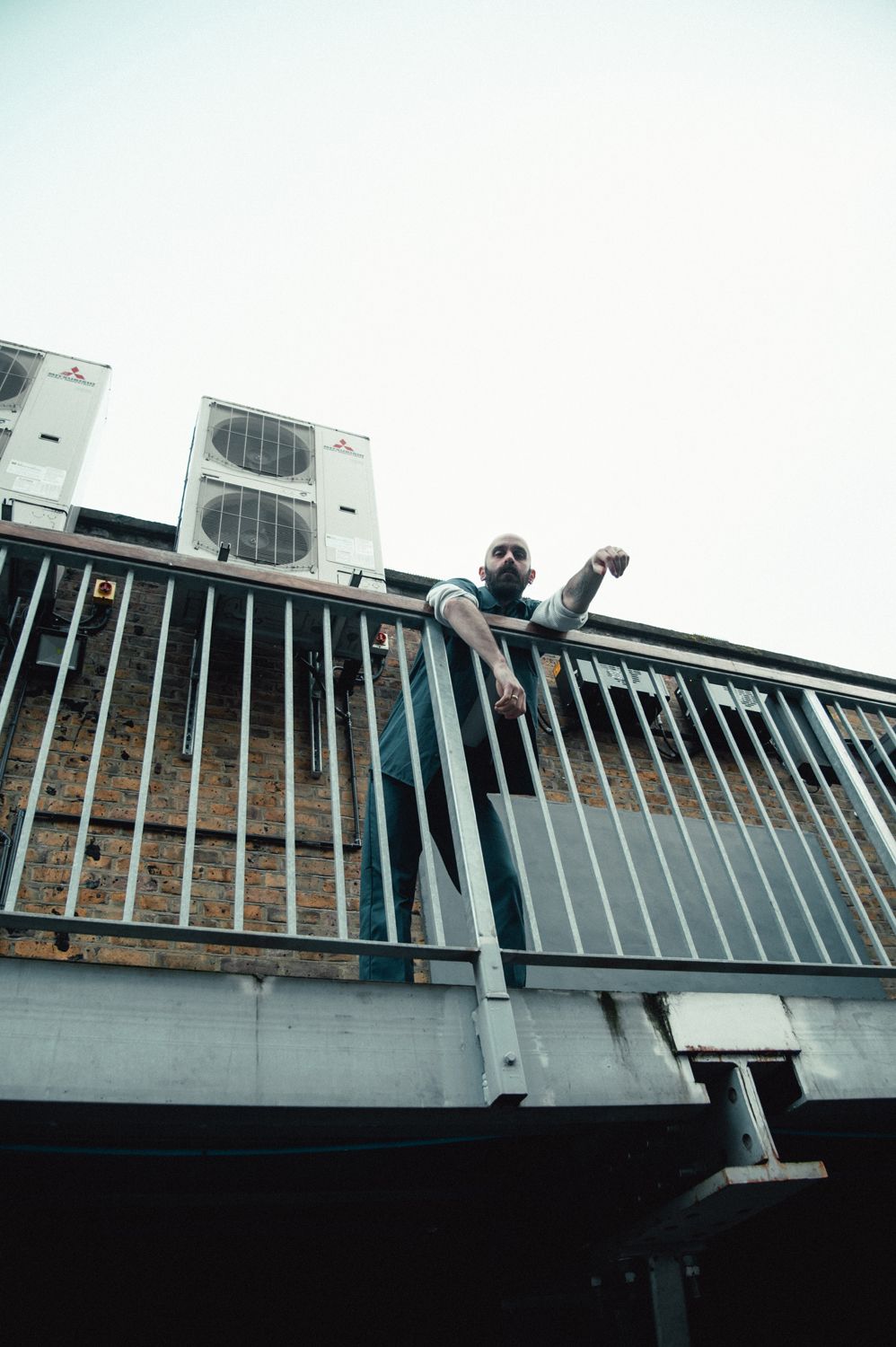
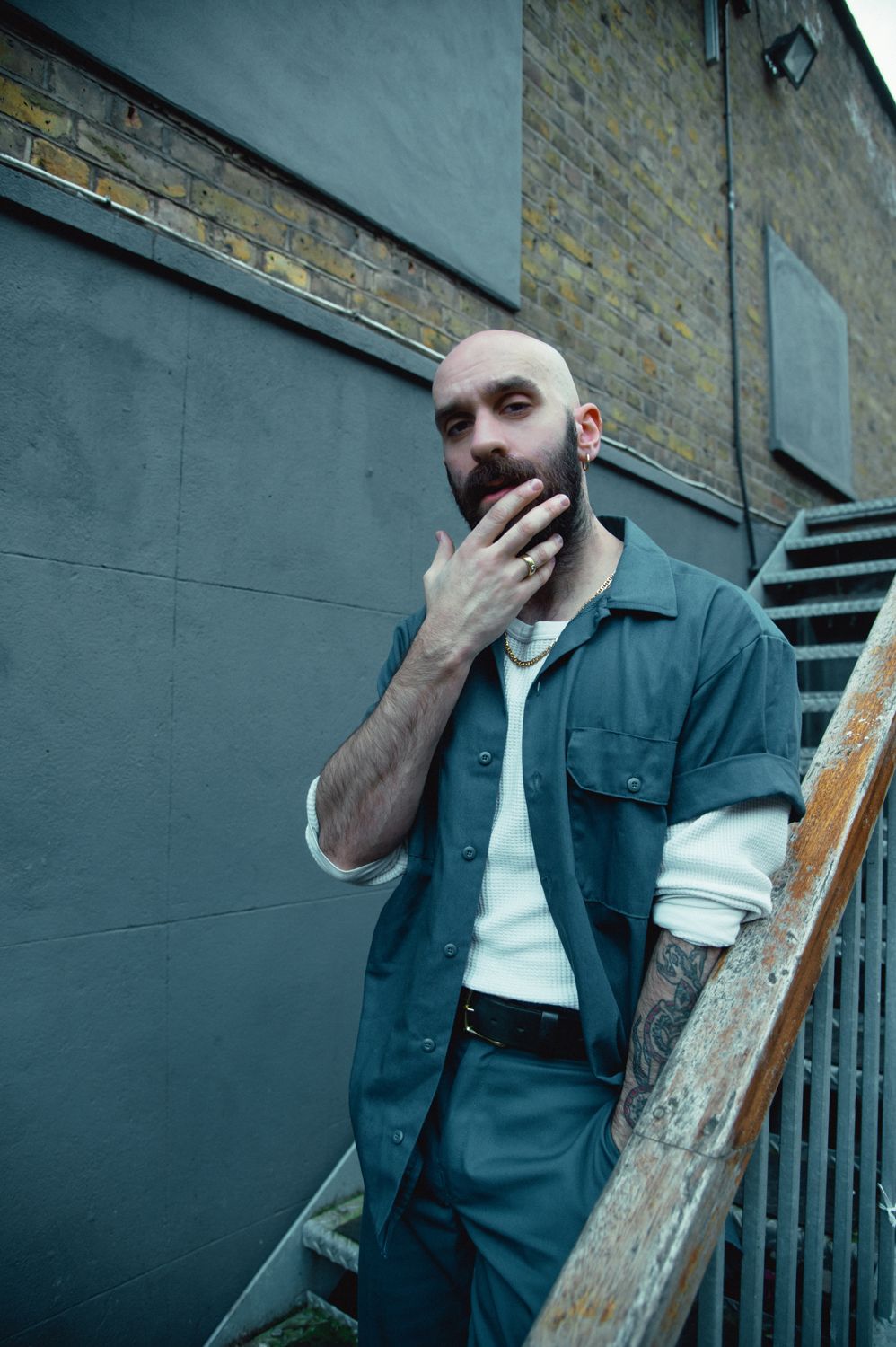

Talking about connections, you seem to have had a profound connection to your music teacher Mr Peterson, that’s him at the end of the track :Your Town”, on the new album?
Yes, that was the last voicemail he left me. That was the last time I heard his voice. A couple of months later, he passed away, and it was a few years after that I wrote that song for him. It really breaks my heart that he wasn’t around to hear this album. I think Todd would have really liked it.
When he died, I felt really torn up. I felt guilty for not communicating with him more, for not being there for him when he wasn’t doing well. I avoided it because I thought I was too busy. Looking back, it’s heartbreaking because he meant so much to me and to other kids in Ithaca who dreamed of working in the performing arts. Writing that song helped me process a lot of my own shame and grief. I think I’ve forgiven myself a bit for not being there enough, for not answering his calls or his texts. I had to, at some point.
Self-forgiveness is so important. You’ve written quite a lot about mental health, I’ve noticed, how important is it for you to address themes and issues like that in your music?
Addressing mental health is crucial; it’s deeply intertwined with who I am. I’m lucky, coming from a talkative Jewish family, though that’s not universal among Jews. Even my mom, who wasn’t raised Jewish and comes from a WASPy (White Anglo-Saxon Protestant) background, always encouraged open discussions about our feelings. This contrasts sharply with my wife’s family, who are Irish Catholic and generally avoid discussing such issues.
In my family, we always dig deep into problems, sometimes excessively so. It’s a give and take. Being raised to analyse why I feel a certain way and to talk about it has been invaluable. I’m in therapy and have been since childhood, along with my brother. It’s just part of my nature to discuss mental health and my personal struggles. I’ve never been clinically diagnosed with anything, but I experience the full spectrum of emotions like anyone else—sadness, elation, confusion, envy, shame, and passion—and it’s important for me to express and discuss these feelings.
It sounds like a really healthy way to be.
Yeah, thanks. I am proud that I feel like an emotionally capable man. Many of my guy friends struggle with being in tune with their emotions, and I can see how challenging it is for them. It’s not always easy for me either, but it’s a little easier for me in certain aspects.
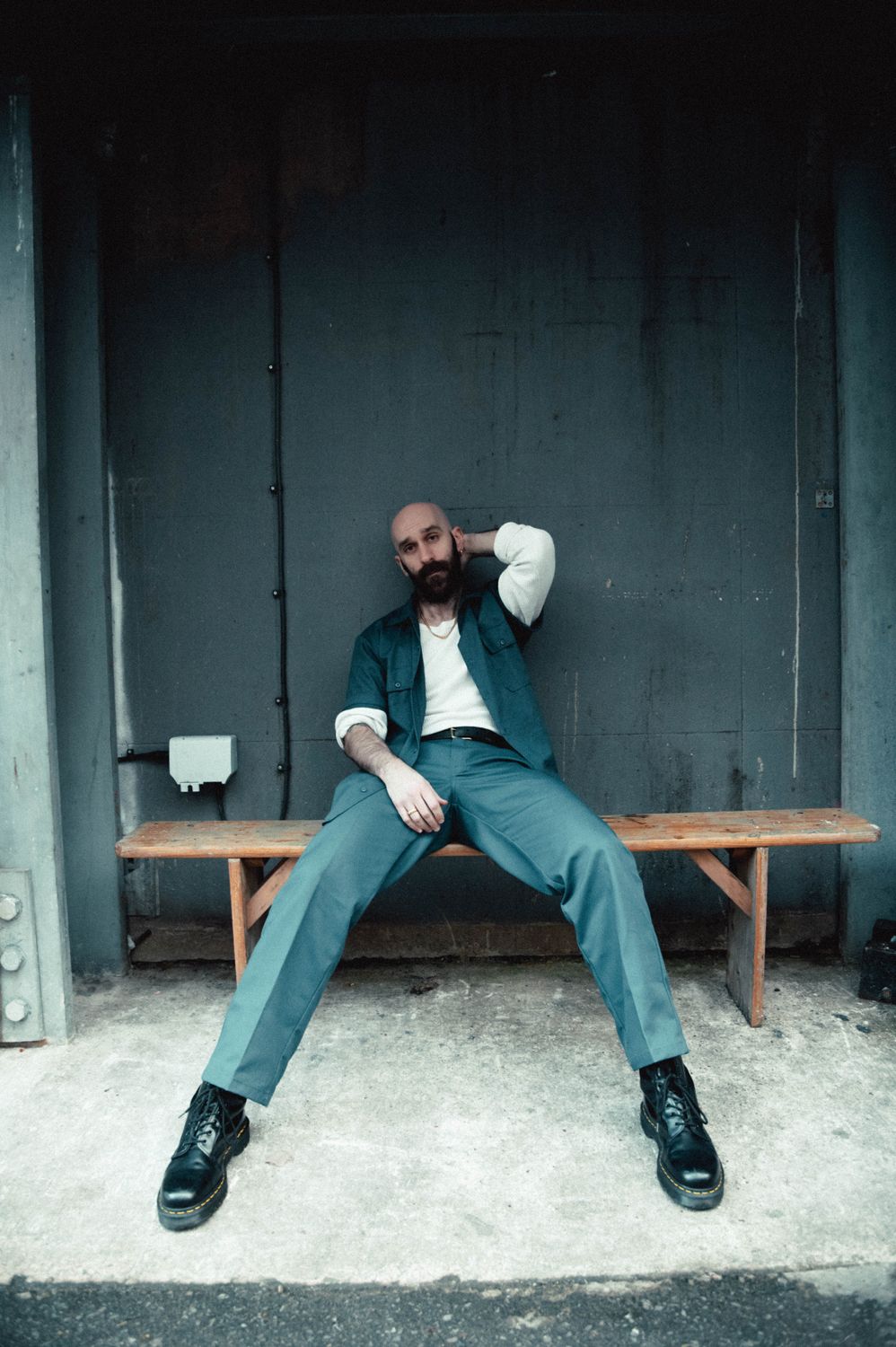
Coming back to the albums, I love how each album differs in style – on VHS you have little snippets of recordings from your life, and on Beautiful Liar you have the fun audiobook intros and outros… What inspired those?
I grew up listening to albums like Ready to Die by The Notorious B.I.G. and The Score by The Fugees, which featured thematic skits throughout. Additionally, since my brother is blind, we often listened to a lot of audiobooks together. This was the best way for us both to enjoy entertainment on equal terms. These experiences inspired me to incorporate similar elements into our albums. I’ve always enjoyed adding those thematic elements into the albums.
And how do you feel your music has evolved with each album?
I think our approach to albums is pretty schizophrenic, but it really reflects where I’m at personally. That first record, VHS, from almost ten years ago, was when I was trying to prove myself. It started us on this journey of ‘we can do this’ and exploring different facets of ourselves. I think it was fun because I love putting on different costumes and trying on different characters and parts of myself that I’m not necessarily comfortable with being in my daily life, but in this field I get to do that, and that was really fun for that record to feel a little all over the place.
Then Orion was a hard transition. We had a falling out with the producer from our first album and we parted ways with our original guitarist. It took us four years to move from the first to the second album, during which we scrapped a whole album’s worth of material. But it pushed me further as a songwriter, like with the song “Hey Child”, where I moved past initial meaningless ideas to something that deeply mattered to me, inspired by a childhood friend.
For Beautiful Liar, I embraced a full persona for the entire record, drawing inspiration from old cartoons I loved as a kid, like Batman: The Animated Series by Bruce Tim. It turned into a visual feast and even expanded into a podcast—really a sprawling project.
With the latest album, Townie, I shifted back to something very autobiographical, the opposite of the previous album’s persona. I find that swinging the pendulum back and forth like this is good for me; it’s how I naturally operate.
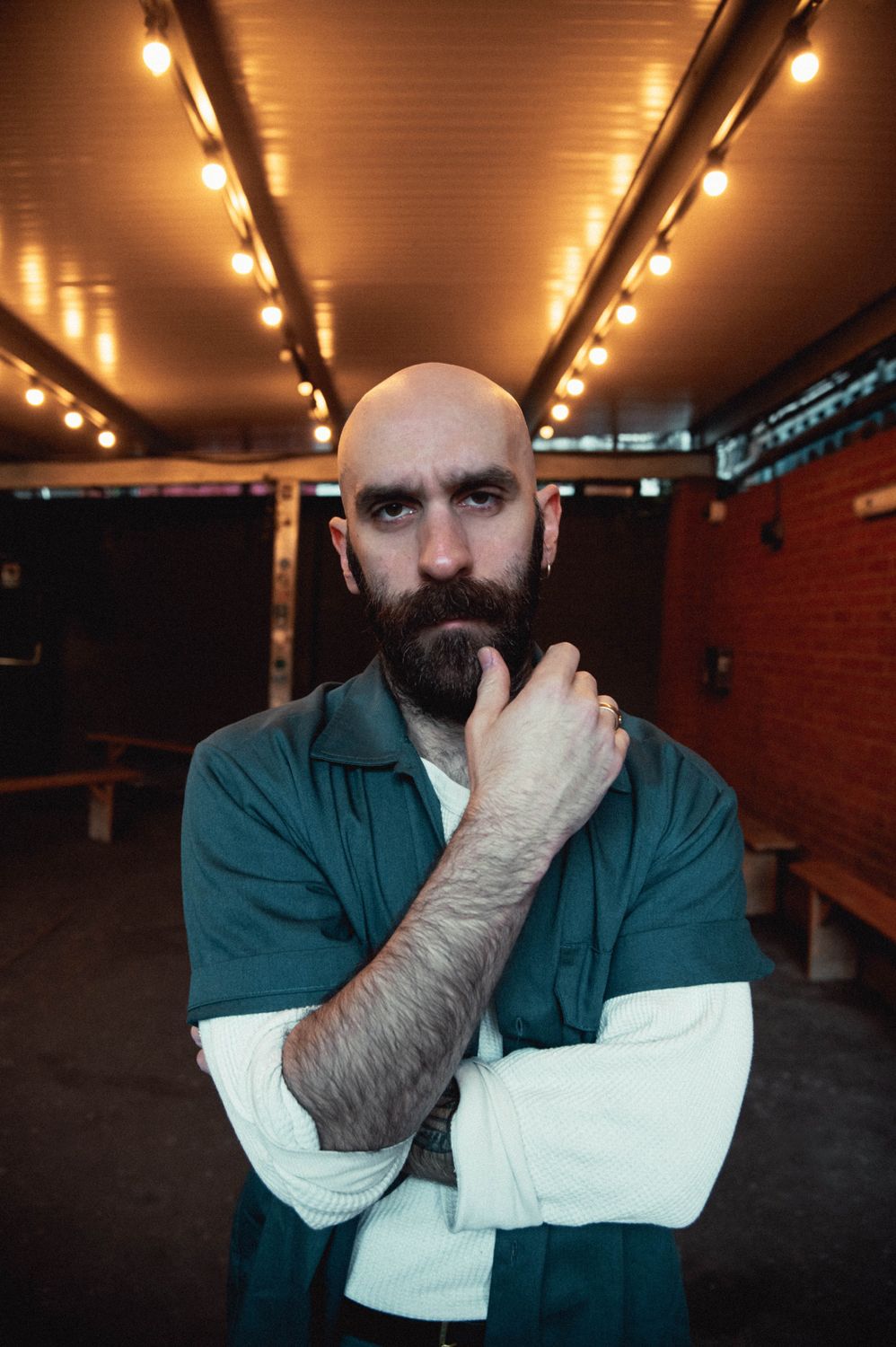
I found some of the new album quite moving. “Follow The Sound Of My Voice” is very moving, clearly about your brother and his experience being blind. Did he co-write that with you?
I wrote that song myself, but it’s interesting because when I played it for my brother—since we’ve been performing it live and it’s become part of our album—I’ve had many discussions with him about it. Initially, I intended it as a tribute to him, writing the song trying to paint a picture of him.
However, he pointed out that the song is actually more about me—about my experience and feelings growing up as his brother. I am so proud of that song. It’s become my favourite on the record. It was both the hardest and easiest song for me to write, embodying so much of our shared and individual lives.
And have you found that Casey’s blindness has had a big impact on your whole experience of writing music?
Yeah, undeniably so. I think that growing up, I often minimised my own feelings and troubles because what did I have to worry about compared to what my brother had to deal with? My dad was always working, so it was mostly my mom, my brother, and me. I kind of became like a third parent. My mom would confide in me about what Casey did at school today and what we were going to do about it. I took on that responsibility enthusiastically because I loved being helpful. But at the same time, I also sought ways to be the centre of attention. I did a lot of theatre and became the lead singer of a band.
I remember this one time, I broke my nose at First Dam in Ithaca, which I wrote about on the record. Reflecting on that story, I realised I might have enjoyed the attention from being hurt. That’s what I do for a living now—I put my pain on display because I’m afraid of becoming invisible. It’s a realisation that confronts me, but it also leads to an understanding that none of this shit will really matter in the long run. Millions of years from now, no one’s going to be thinking about you, and that’s okay, that’s kind of beautiful. It allows you to be in the present moment.
That’s a really great philosophy. So what’s next for you on this current tour?
After a week off, we hit the road again to finish things out in the US. We’ve just completed three and a half weeks in Canada, following our time in the UK and Europe during February and March. We’re looking at about a month and a half more on the US leg of our Townie tour.
After that, it’s time for some rest and figuring out what’s next in my life. I mean, I can’t imagine stopping music; it’s like a compulsion for me. I thank my fucking lucky stars every day that people enjoy what we do because the music industry is tough. It’s impossible. It’s getting increasingly difficult for musicians to make a living solely from music. I saw something today from producer Kenny Beats saying that thinking you can make a living as a full-time musician is a fucking fantasy. You have to diversify and do so much more these days. I feel so lucky that we’ve been able to get by and make a living solely on our music for the last 10 years.
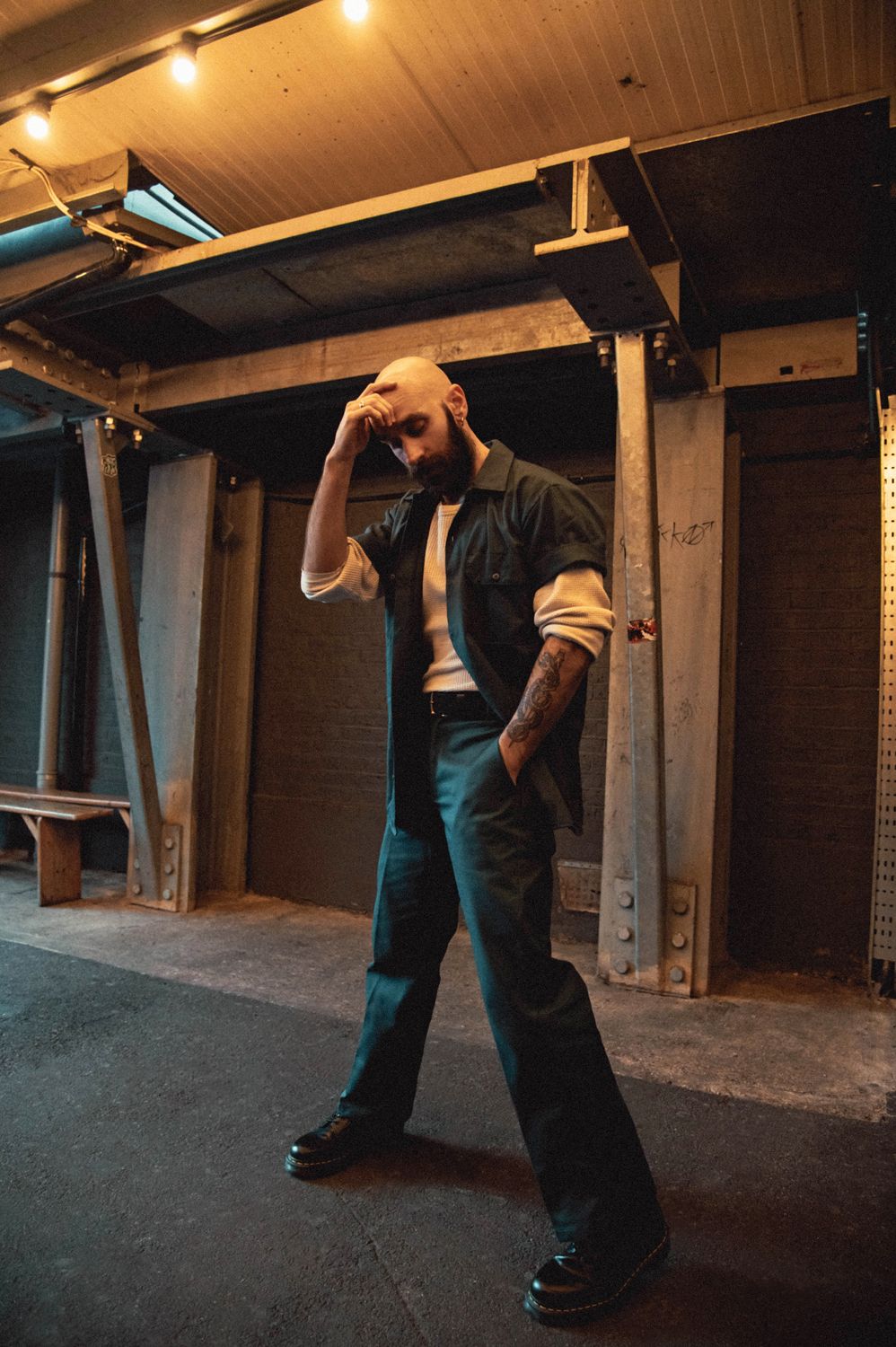
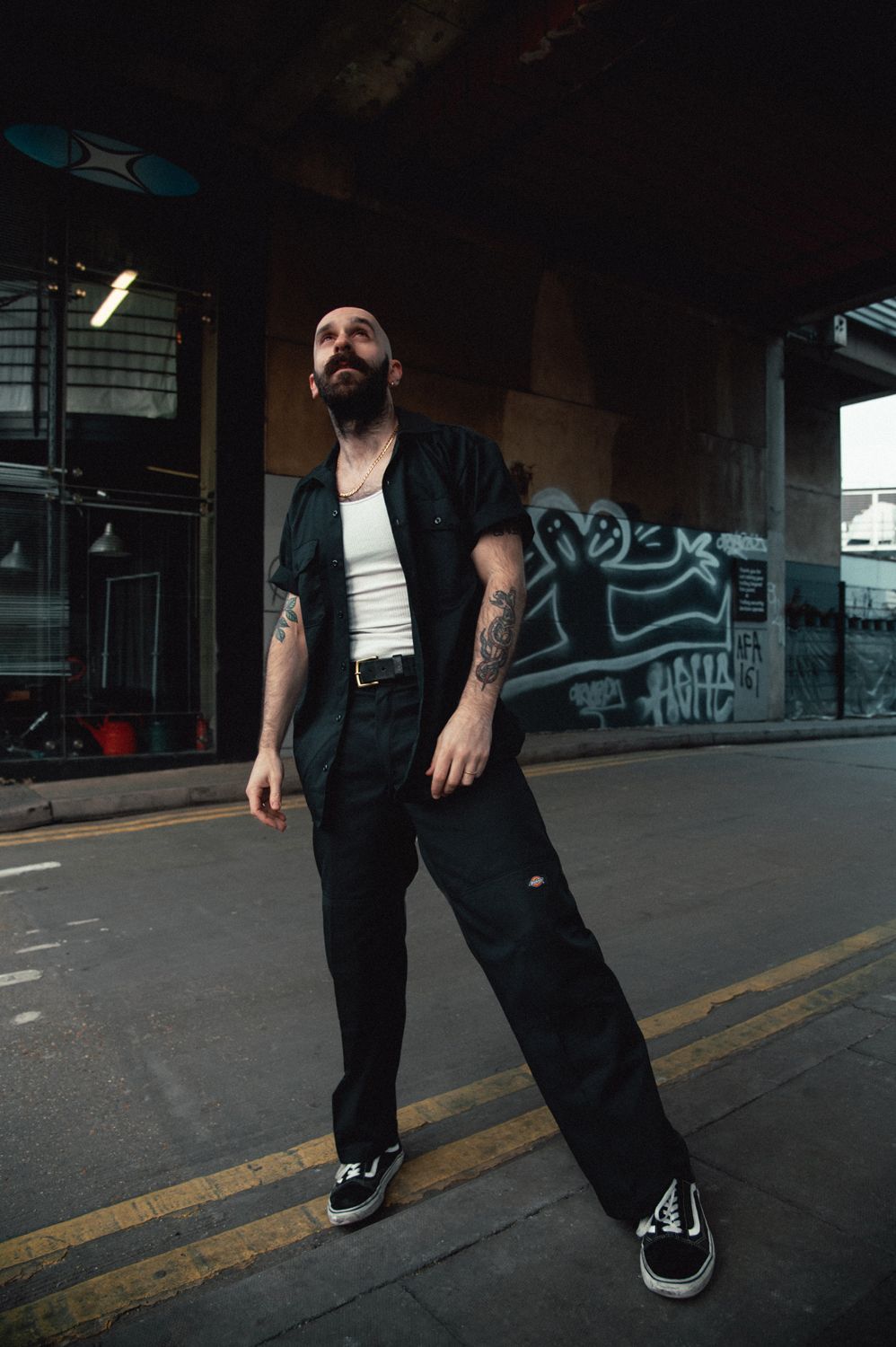
I read that you took up dancing in 2021 as a way of enhancing your stage presence, can you tell me about that?
I’ve been dancing since I was a teenager, heavily involved in theatre, which naturally led me to explore different activities. Beyond musicals and my terrible attempts at sports like football and lacrosse, I also took swing dance, tap dance, and Latin dance classes at the Community School of Music and Arts in Ithaca. I was telling someone the other day about how I was that weird kid in middle school, trying everything. At night, I’d go take these dance classes with a bunch of middle-aged women, and I just loved it.
There were these two straight dudes in my town who were ballet dancers and got laid all the time. I thought, “That’s cool. I can dance. I can sing. Maybe I could do that.” I was in love with every single dancer in my town. But yeah, I came back to it recently. It’s just such a beautiful thing to me. During the pandemic, I knew I wanted to do some sort of weird movement stuff for the album visuals because that’s what the music evoked in me.
When I got into a room with my friend Jenna, who is an incredible choreographer and movement coach, and we started moving again and dancing again, I hadn’t been in my body like that since COVID started. After our first session, I was in tears because it felt so good to just be in my body and be expressive. Dancing is something I’ve always loved, and I hope I can do it for the rest of my life. I’ve always incorporated the theatrical elements of my background into my stage performance with the band. It’s funny doing this new tour and playing a lot of these new songs because I have a guitar in my hands most of the time, so I’m not able to move around as much, it’s giving my body a nice break though.
Oh, I wanted to ask… how did you feel when Elon Musk decided to change the name of Twitter to make you his personal Ambassadors?
That’s a great one; I haven’t heard that joke before, so well done!
Honestly, I’m not even on Twitter anymore; I never tweet, so I really don’t give a shit. He can do whatever he wants, even co-opt our name. And yeah, of course Elon called me up, I mean he wasn’t going to ask to use our name, he’d just do it, but wanted to give me a heads-up, you know as a buddy.
Of course. Makes perfect sense.So, what’s coming up for you in the summer?
I put out a solo record last year and I’m now starting to do more on my own, so I’m playing at Lollapalooza this August. The band is also set to perform at the Bourbon and Beyond Festival, which has an incredible lineup including Zach Bryan, Noah Kahan, and Tyler Childers. It’s a really wild lineup and somehow we’re on it too. Besides that, there are a couple of other things here and there, but it’s been such a heavy, front-loaded year that I think we’re going to take it pretty easy for the rest of the year.
It sounds like you’ve earned it. It been an absolute pleasure talking with you, Sam, good luck tonight and enjoy the rest of the tour.
Great talking to you too, man.
The new album Townie is out now.
Watch the visualiser for new song “Smoke On The Highway” and their live performance of “No Strings” on Late Night with Seth Meyers below.
Interview Nick Barr
Photography Jack Alexander

